How Is My Niece’s Daughter Related to Me?
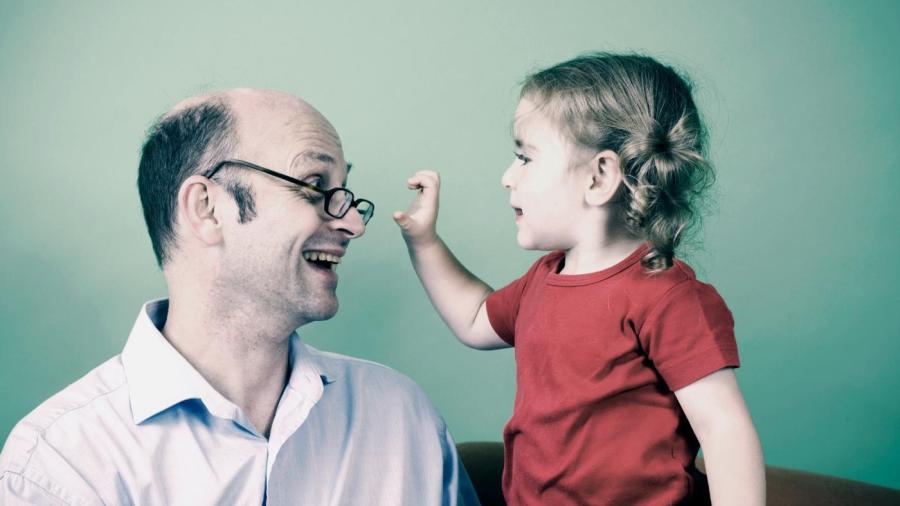
DNA testing and ancestry mapping have exploded in popularity in the last decade. It can be thrilling to discover that you have a distant relative who lives down the road, or familial ties to a notable historical figure. These results can also lead to more confusion than clarity as you try to make sense of an ever-growing family tree. Or maybe you’re like me (a person with 35 first cousins). I don’t need a DNA test or ancestry service to feel confused about my relationship to various family members.
This is where family naming conventions come into play. There are general conventions that explain how you’re related to your loved ones, and the family members that you’ve not ever met. If you’re interested in making sense of your family tree, read on for a guide to these conventions.
How Are You Related to Your Niece’s Daughter?

To put it simply, your niece’s daughter is your grand-niece. You are her grand-aunt or grand-uncle. However, unless your family is very formal, you’ve probably never heard the terms “grand-aunt” or “grand-uncle” before. Instead, you’re probably used to hearing “great-aunt” or uncle and a great-niece or nephew (or “nibling” for the non-binary kiddos in our family).
If we want to split hairs, “grand” is the proper prefix to describe the family relationship. We use the prefix “grand” to describe relationships separated by a generation. Just as your sibling is the grandparent of your niece’s daughter, so are you the grand-aunt or uncle. That said, language is ever changing, and it’s often more useful to use language as it is commonly understood, even if it’s not technically correct. You’ll even find modern dictionaries defining both a great-aunt and a grand-aunt as the same person.
What’s the Difference Between a Great and Grand Relative?
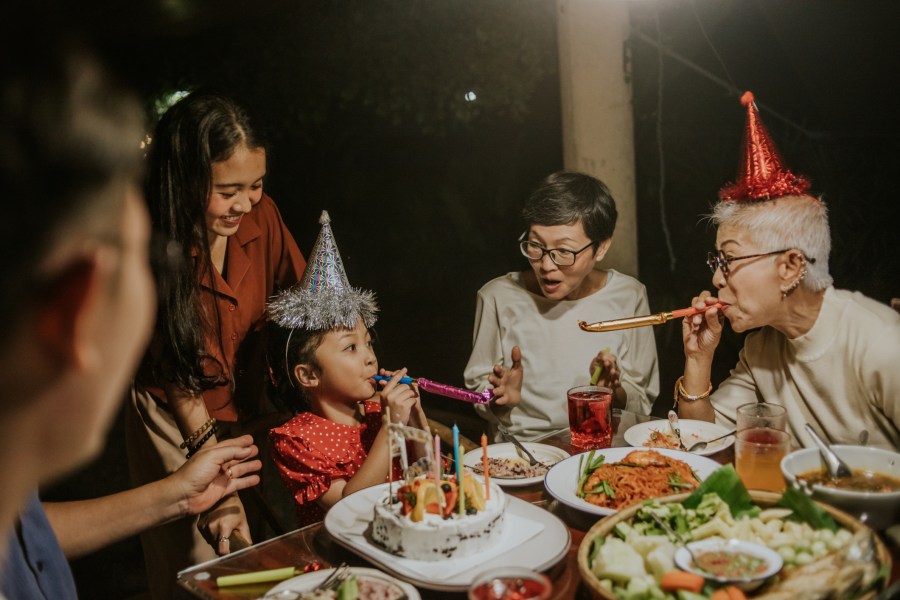
So if “great” and “grand” are used to describe the same relationship when it comes to aunts, uncles, nieces and nephews, are there any meaningful differences between the terms? The terms great and grand become more important when it comes to grandparents. The very term grandparent has grand built into it.
The father or mother of one of your parents is your grandparent. You are separated from that individual only by your parent’s generation, and they are considered a close relative. The parents of your grandparents are your great-grandparents. That person’s parents are your great-great-grandparents. For each generation that the relationship goes back, you add another great in front of the term grandparents. If we apply this to the first example, when your niece’s daughter has a child of your own, you will technically be that child’s great-grand aunt/uncle.
Are You First, Second, or Third Cousins?
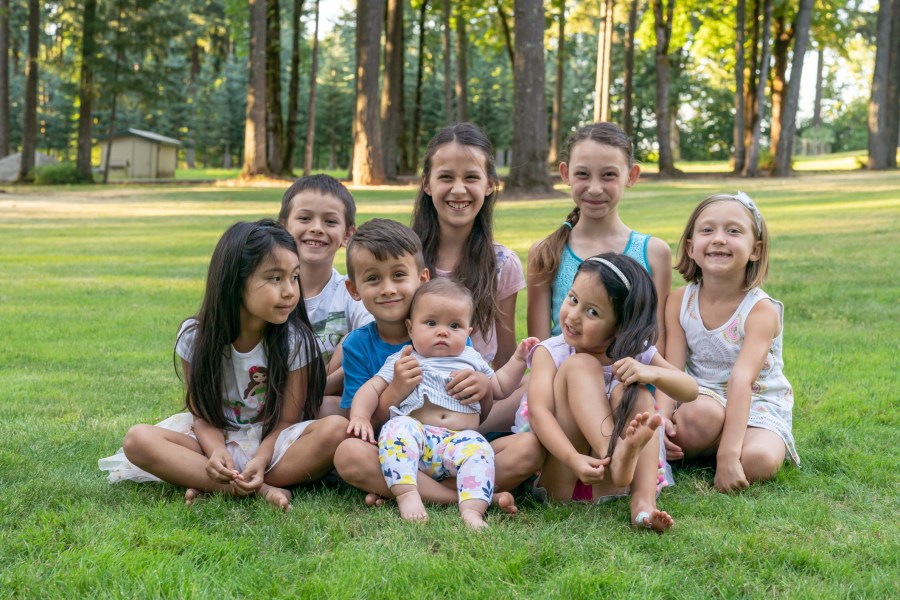
Your first cousin is the child of your aunt or uncle. When one of your first cousins has a child, that child is your first cousin once removed (more on that in just a bit). When you have a child, your child and your first cousin once removed become second cousins. When that generation of cousins have children, they are third cousins.
Sometimes relationships between cousins can get a little confusing, especially in the minds of children, because of the names that children are told to call cousins. If the siblings of one generation have many years between them, it’s possible that a ten-year-old may have a 60-year-old third cousin. Cousin is traditionally viewed as more of a peer-to-peer family relationship involving people within the same age range who grow up together, speak to each other casually, and call each other by their first names.
To pay respect to older cousins, some families encourage younger ones to call older cousins aunt or uncle, rather than just calling someone old enough to be their grandparent by a first name. In some families, this tradition is so deep-seated that generations grow up thinking that a second or third cousin somehow becomes a different type of relative. With the exception of marriage between relatives, a cousin always remains a cousin no matter how far away that cousin is. The spouse, children, and grandchildren of your cousin are also your cousins no matter how far down the generational lines the relationship goes.
What Does it Mean to Be Once or Twice Removed?
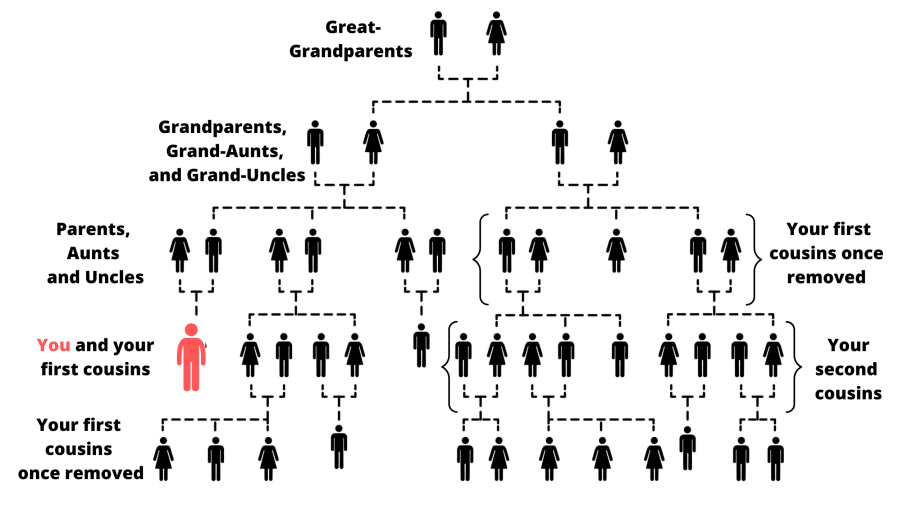
Someone who is once or twice removed from you is separated by a corresponding number of generations on a family tree. If you have a relative who is once removed, there is one generation between you and that person on a family tree. If you have a relative who is twice removed, there are two generations between you and that person on a family tree.
These terms are most often used when referring to distant cousins. Cousins remain cousins no matter how far away you are, but the “removed” terms are a qualifier that notes the generational distance. There’s a big difference between being cousins because you share a grandfather (i.e., first cousins) and being cousins because you share a same great-great-great-grandfather.
Why It Matters
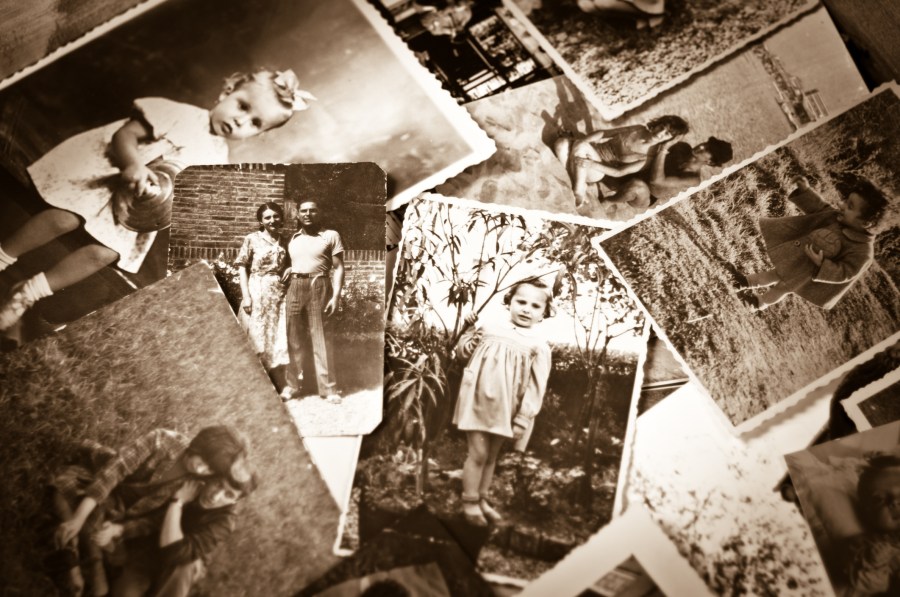
Today, many families are spread out or out of contact. For a lot of people, there are just one or two older family members who could even take a guess at who their cousins twice removed are.
Historically, keeping track of a family tree was an essential task. For people in royal bloodlines, family trees shaped history and determined who one could or could not matter. At points in history when land inheritances were very important, people would take great pains to trace their family tree back to a certain wealthy relative, no matter how far removed that person may have been.
There is also the important matter of marriage and making sure one was not marrying a close relative. In centuries past, when the global population was much smaller, that was a serious concern. There have been plenty of moments in history when knowing one’s family tree has had far greater implications than just knowing what to call that unfamiliar face at Christmas dinner.
The next time you go to a family reunion, you can impress everyone with your newfound understanding of your family tree.





